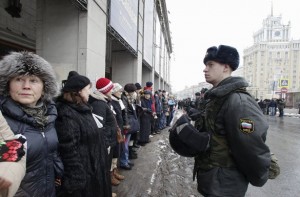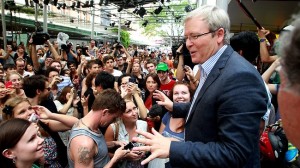The Economist‘s cover story this week features “The Beginning of the End of Putin,” with a thoughtful piece looking beyond Sunday’s election and a companion piece about how different Russia is today from the Russia that first elected Putin in 2000 — it is presumed that Putin will win, likely in the first round, and likely with some amount of electoral fraud, which was so comically and blatantly deployed in the December 2011 parliamentary elections to the Duma.![]()
Meanwhile, on the eve of the election, there’s some doubt as to whether Putin will countenance any of the rising protests of the Russia middle class:
- Putin is already making noises about running for reelection in 2018, which would keep him in office until 2024.
- He’s refused to a re-run of the Duma elections from December, which were notoriously fraud ridden, sometime to comic effect, as shown in clips on YouTube.
- News reports have placed in doubt whether current President Dmitri Medvedev, one time a proponent of more liberal reforms in Russia, will return to the prime minister’s office when Putin returns to the Kremlin.
All of which means that the popular response to Sunday’s vote matters more than the actual vote itself.
The fundamental question is not whether the inevitable Russian protests following the vote will grow, but whether the standoff will end like in Iran in 2009 or Tunisia in 2011. Stay tuned.





